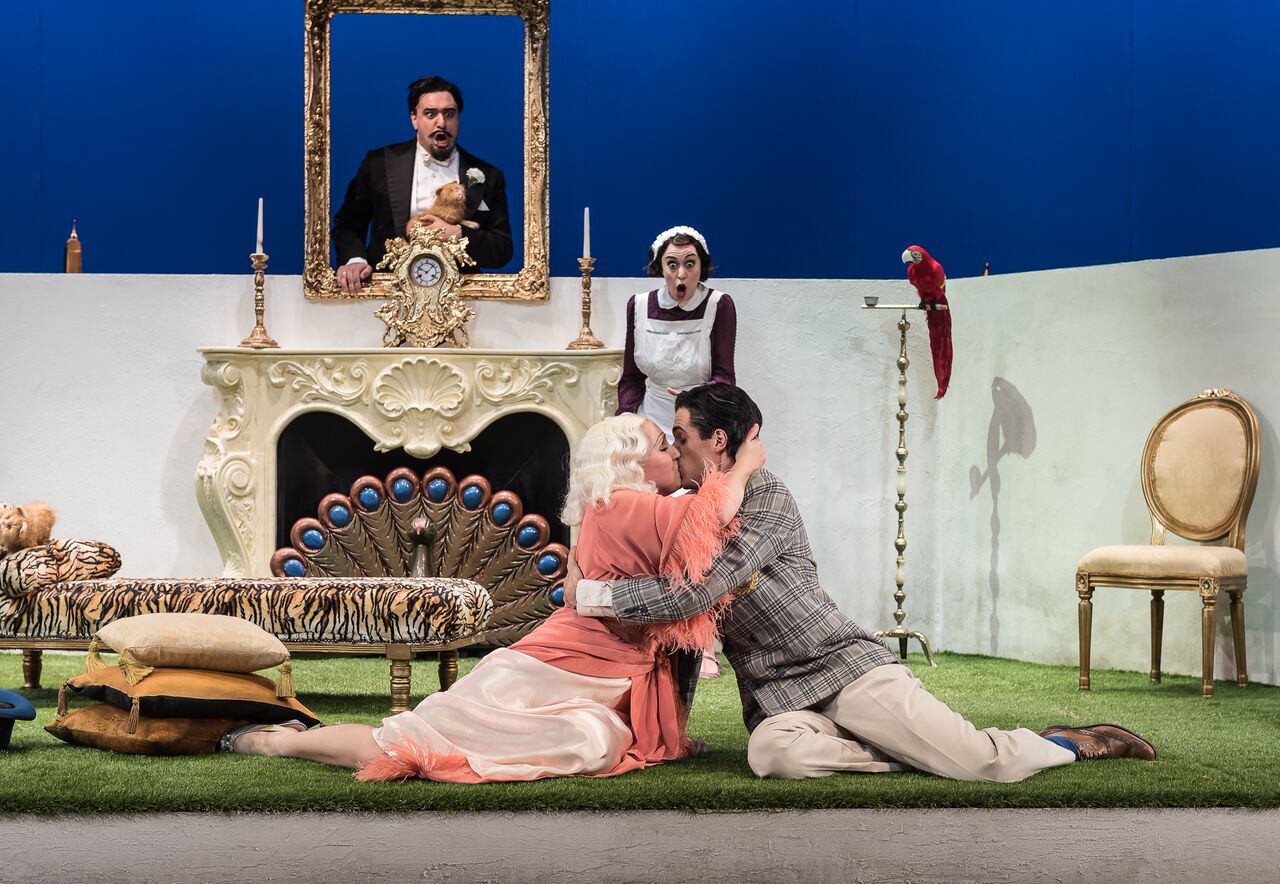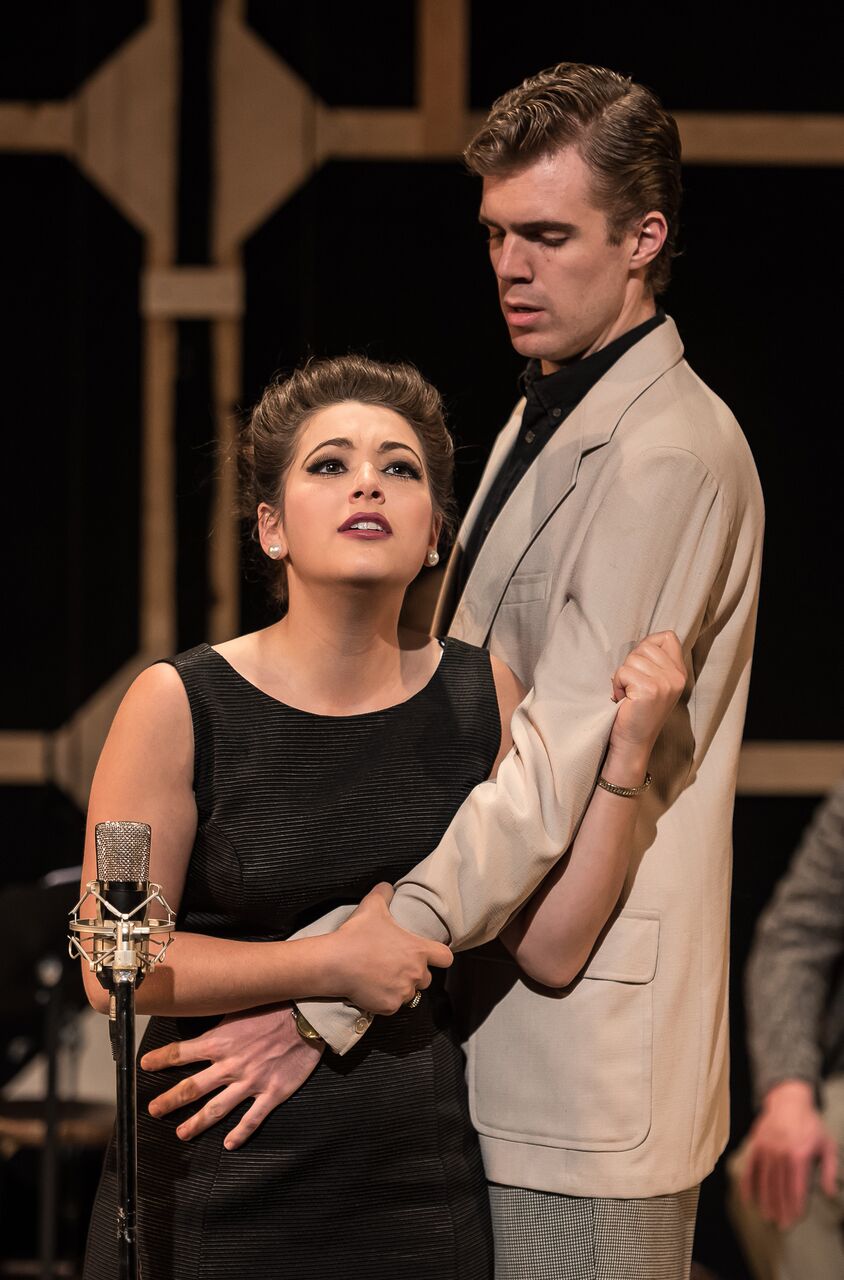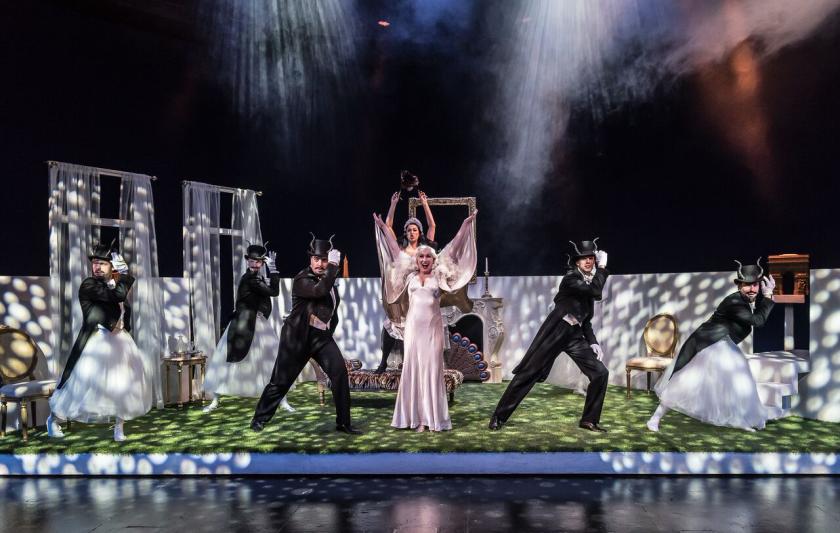Common wisdom has it that the prolific output of 20th century Czech genius Bohuslav Martinů is very uneven, a judgment surely made without a complete hearing. Some listeners shrink from his fidgety polystylism. Many of us on the fringes of the Martinů hardcore, though, have found ourselves giddy with each new discovery of music we didn't know before: last year, string duos on a CD from viola-player Maxim Rysanov, this year piano trios from the Czech label Supraphon and now two one-act operas, this time live from Guildhall students.
Before voicing any reservations, it has to be spelled out that no-one else is doing this kind of work at such a high level across the board (the sung French, for instance, speaks of excellent language coaching). A great deal of thought has gone into concept and casting. Both Ariane from 1958, a psychoanalytic take on a myth we may not recognise in this version and composed in Martinů's rareified, often simpler late style the year before he died, and Alexandre bis of 1937, a bedroom farce with a typically peculiar twist, play with the concept of doubles. In Ariane Theseus in slaying the Minotaur – no labyrinth, no golden thread – kills part of himself; Alexandre is a bourgeois husband twice over, once as bearded patrician portrait and the second time in clean-shaven "disguise" as his American cousin, a trifling twist on the plot of Cosi fan tutte.
 The casting clearly plays to the Guildhall's greatest strengths among its students at the moment, both prizewinners: Josep-Ramon Olivé, the perfect Mozart/Handel baritone, as Thesée and Alexandre bis, and Milan Siljanov – he's been singing bass roles but I hear in this rich voice the ideal Verdi baritone – as the Minotaur and portrait Alexandre (pictured above with Olivé's shaven husband, Bianca Andrew's maid, Elizabeth Karani's wife). The two productions, in Simon Corder's clever designs and lighting, don't look anything like each other, but given that the psychological ties are already there, they don't need to.
The casting clearly plays to the Guildhall's greatest strengths among its students at the moment, both prizewinners: Josep-Ramon Olivé, the perfect Mozart/Handel baritone, as Thesée and Alexandre bis, and Milan Siljanov – he's been singing bass roles but I hear in this rich voice the ideal Verdi baritone – as the Minotaur and portrait Alexandre (pictured above with Olivé's shaven husband, Bianca Andrew's maid, Elizabeth Karani's wife). The two productions, in Simon Corder's clever designs and lighting, don't look anything like each other, but given that the psychological ties are already there, they don't need to.
Director Rodula Gaitanou gives us her own take on the news that Martinů, shortly before his death, listened over and over to recordings of Maria Callas, and based the role of Ariane on her, though she never sang the role; vocal wear and tear might already have made it difficult. Gaitanou sets the whole of this first of the evening's operas in the Salle Wagram studio where Callas recorded Carmen in 1965. Shades here, perhaps, of Christof Loy's Salzburg Die Frau ohne Schatten, where the characters appear in 1950s casual wear for something like Karl Böhm's Vienna recording. But Gaitanou's Ariane offers another, more subtle Straussian link: the singers can mess around in the studio, providing some light relief, as well as taking their roles seriously – the backstage Prologue and mythic opera of Strauss's Ariadne auf Naxos deftly interwoven.
 Parallels with Callas's own sense of desertion aren't too overdone. The only problem is that while Nicola Said is brilliantly made up to look like La Divina (pictured right with Olivé as Thesée), she's an altogether lighter lyric soprano, managing the bigger phrases but sometimes at the cost of squeezing the voice. The men dominate, though the final "Lamento d'Arianna", essentially ending where Strauss and Hofmannsthal begin, has a haunting rondo refrain and makes a deliberately weird contrast to the brittle neoclassical music around it. The text from the original play by Georges Neveux, whose Julietta or The Key to Dreams furnished Martinů with his greatest operatic masterpiece, begs more questions than it answers. but this mise-en-scène keeps it light.
Parallels with Callas's own sense of desertion aren't too overdone. The only problem is that while Nicola Said is brilliantly made up to look like La Divina (pictured right with Olivé as Thesée), she's an altogether lighter lyric soprano, managing the bigger phrases but sometimes at the cost of squeezing the voice. The men dominate, though the final "Lamento d'Arianna", essentially ending where Strauss and Hofmannsthal begin, has a haunting rondo refrain and makes a deliberately weird contrast to the brittle neoclassical music around it. The text from the original play by Georges Neveux, whose Julietta or The Key to Dreams furnished Martinů with his greatest operatic masterpiece, begs more questions than it answers. but this mise-en-scène keeps it light.
Alexandre bis almost outstays its welcome, saved by the symmetries of the outer scenes and the surreal, dream vein that Martinů does so brilliantly giving a bit of substance in the central fantasy. Victoria Newlyn's choreography for devils in tuxes and tutus is deftly done, Siljanov is amusing as the complacent portrait Alexander while more light sopranos, Bianca Andrew and Elizabeth Karani last night, act well. Timothy Redmond makes the orchestra sound as professional and idiomatic as you could wish; chamber ensemble strings make some ravishing sounds, though it's hardly surprising if the woodwind are stumped by some of Martinů's more florid burbling. Still, what a delight to hear the idiom so easily done. The evening doesn't add up to anything like the experience of Julietta, let alone Enescu's Oedipe, the current rarity everyone has to see, but then it never tries to. Catch it during its short run, for you probably won't get another chance.














Add comment